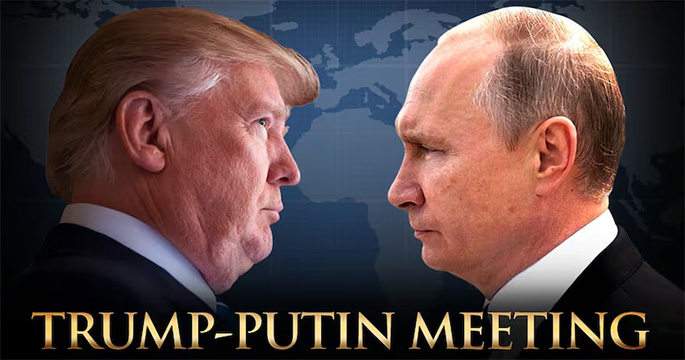
The new US Secretary of state Marco Rubio has said Ukraine would be a “top priority” for President Donald Trump and that efforts to reach a ceasefire would begin straight away. Some of the groundwork has “already been laid”, Rubio claimed and insisted that both Ukraine and Russia would have to concede “something” as part of any deal.
However, Trump upstaged Rubio in real time to assume a threatening stance when he told a news conference he would be talking to Putin “very soon” and it “sounds likely” that he would apply more sanctions if the latter did not come to the table, writes M.K. Bhadrakumar, Indian Ambassador and prominent international observer.
Trump is falling into the same trap Team Biden did — predicating the war on the deeply flawed assumption that the Russian economy is the weak link in Moscow’s strategy, or worse still, Russia’s war economy is a house of cards and time is not on Putin’s side. Quintessentially, it’s a carry-over from the Soviet era — performative and intended to undermine confidence in its political intent. It won’t unnerve Putin. Just recall how effectively his power apparatus dealt with the shock of the 2008 financial crisis.
The new US president wants to go down in history as a peacemaker and unifier. But then, he also sees Ukraine, a resource-rich country, as remaining militarily strong and closely associated with the West. Therefore, neither Ukraine’s capitulation to Russia nor a strategic defeat of NATO fits into his paradigm.
Therein lies Trump’s predicament. Fundamentally, he has no intention to jettison the US’s claims to global hegemony even as he distances from the so-called liberal-globalist agenda of wasteful expeditionary wars. At a speech during the commander-in-chief’s inaugural ball, Trump said the US would achieve “peace through strength”, an expression often attributed to Ronald Reagan. Twice in the past week, Trump has called for enhancement of NATO countries’ defence spending from the existing 2 per cent of GDP to 5 per cent.
Russians have a long memory. Just hours before Trump’s inauguration, the veteran foreign minister Sergey Lavrov told a briefing session with Russia’s Security Council chaired by President Putin that “everyone is trying to guess what official approaches the Trump administration will promote… let me repeat that all of these are preliminary statements, more like test runs.” Lavrov said even the US’s Western allies are in a waiting mode, leave alone others who have experienced Washington’s record to “maintain conflict potential in the hope of benefitting from the ongoing crises”.
Putin remarked that Moscow welcomes Trump’s remarks on the necessity of doing everything possible to avert a third world war. He noted, “We have never declined dialogue and have always been prepared to sustain amicable and cooperative relations with any American administration… [But] we operate under the premise that the dialogue will be established on an equal and mutually respectful foundation, acknowledging the significant roles our nations play on several vital global issues, including the enhancement of strategic stability and security.”
As regards Ukraine, Putin repeated, “The primary focus here should be addressing the root causes of the crisis… The objective should not be a temporary ceasefire or a pause to regroup forces and rearm for eventual continuation of the conflict, but rather a lasting peace founded on respect for the legitimate interests of all individuals and peoples residing in this region.”
Putin’s message was firm and unequivocal: Russia will not compromise on its core interests. A breakthrough is nowhere in sight. Trump’s drive to stop the war without taking into account Russia’s security concerns and disregarding the root causes is a non-starter.
The end of the Ukraine war is nowhere in sight. Conceivably, Trump may even lash out at some point to impose more sanctions against Moscow, but he will not escalate the war into a direct NATO conflict with Russia. Equally, the US aid for Ukraine will steadily dwindle as Trump shifts much of the financial responsibility for the war onto the EU.
Significantly, Chinese President Xi Jinping called Putin for a virtual meeting. Addressing Putin as “dear friend”, Xi stated: “This year, I am ready, together with you, to elevate Chinese-Russian relations to a new level, to counter external uncertainties by preserving stability and resilience of Chinese-Russian relations, for the development and prosperity of both countries and for justice and equality in the world.”
Global Times commented, “Chinese experts believe that the virtual meeting underscores a high degree of strategic mutual trust and close strategic coordination.” This is indeed going to be a crucial factor in big-power diplomacy during Trump 2.0, as a thaw in US-Russia relations is not to be expected and their confrontation will remain deep.
Trump’s strategy is anchored on the US’s global dominance, something Russia and China will not accept. Tellingly, Xi’s remarks came three days after Trump’s call to him urging Beijing to intervene with Moscow.
read more in our Telegram-channel https://t.me/The_International_Affairs

 11:11 26.01.2025 •
11:11 26.01.2025 •






















